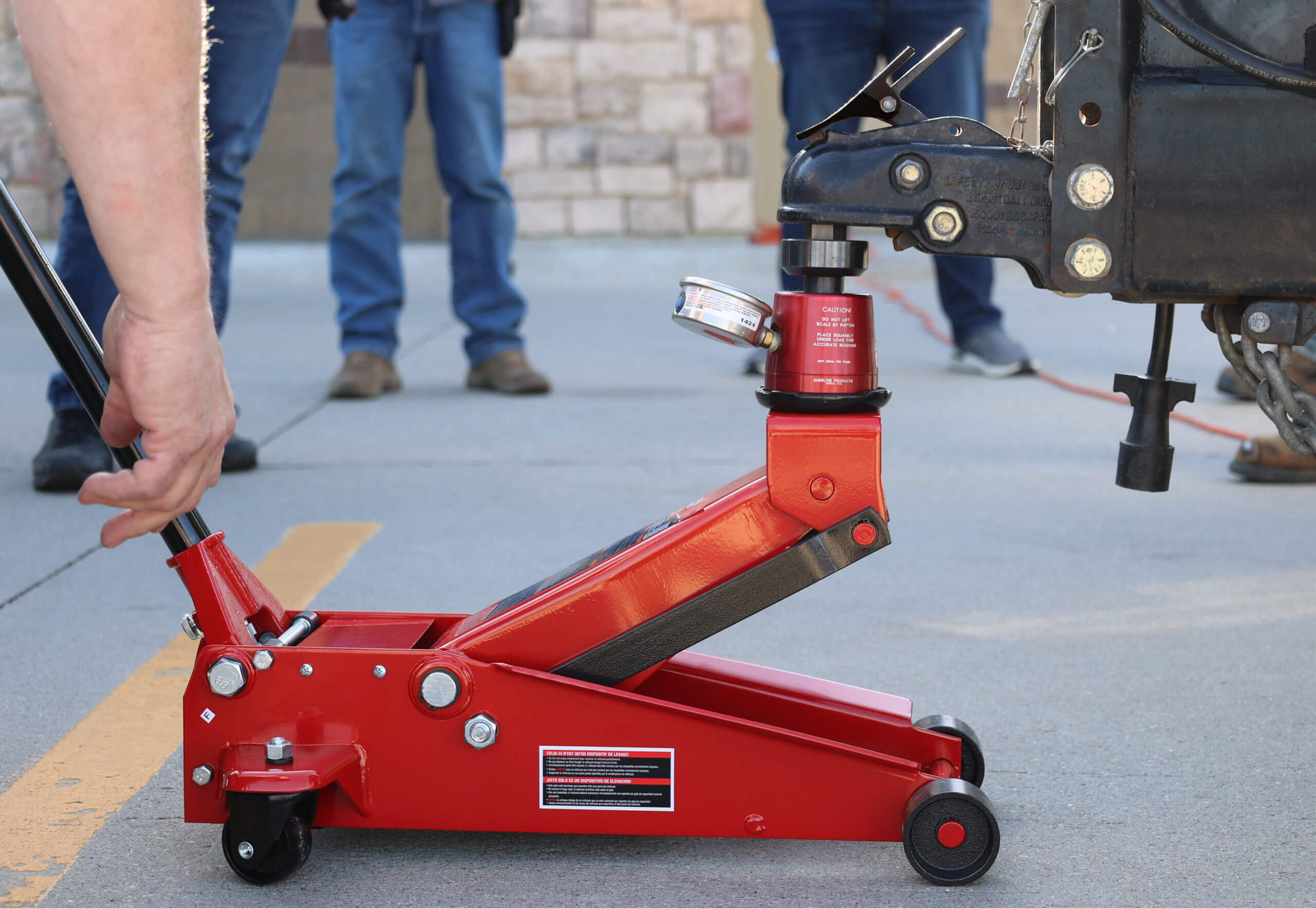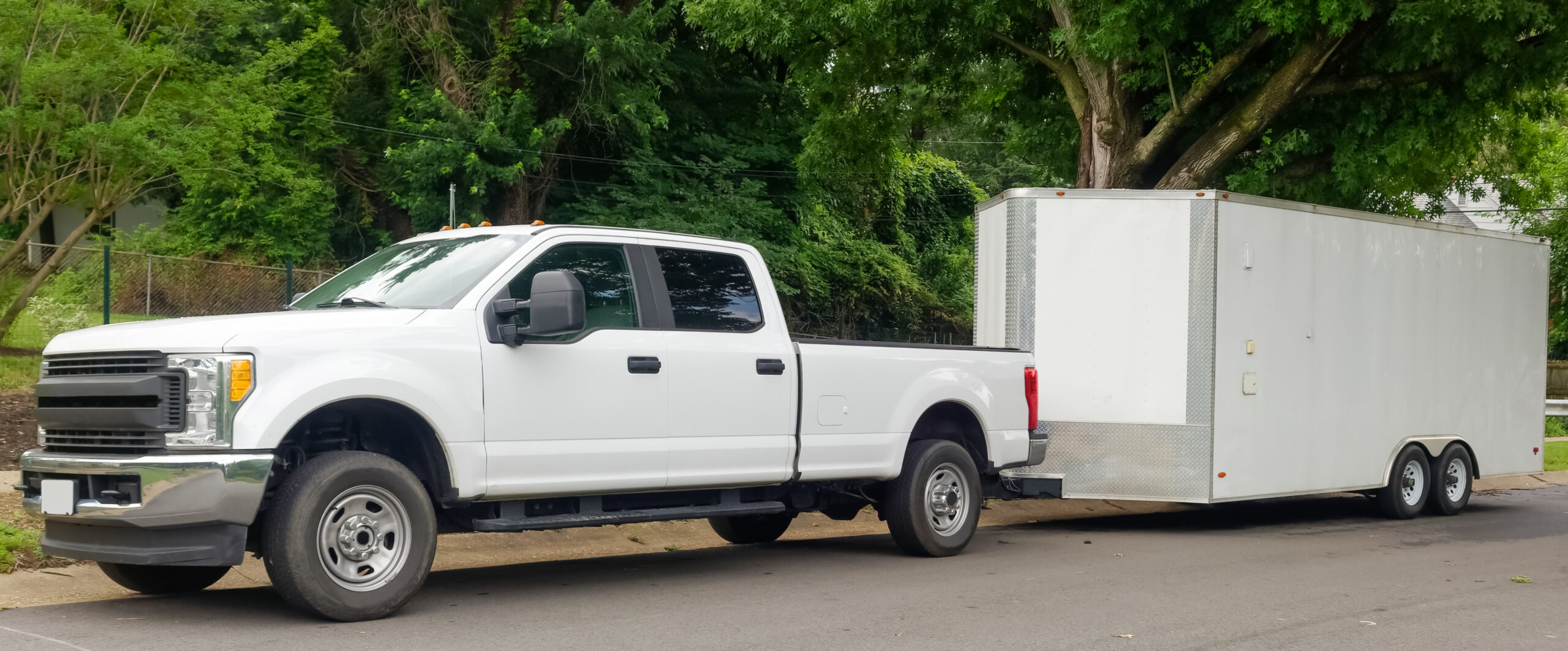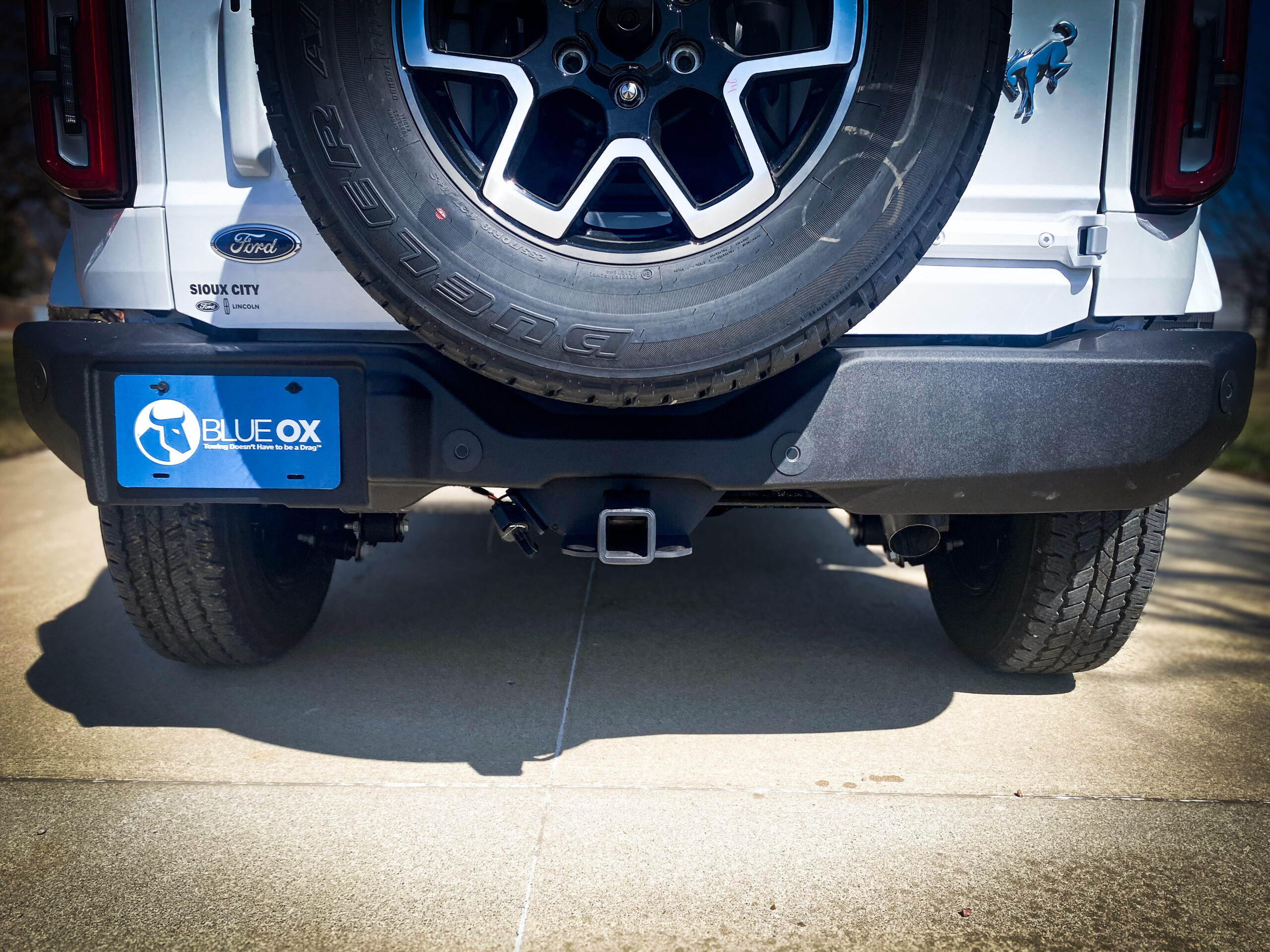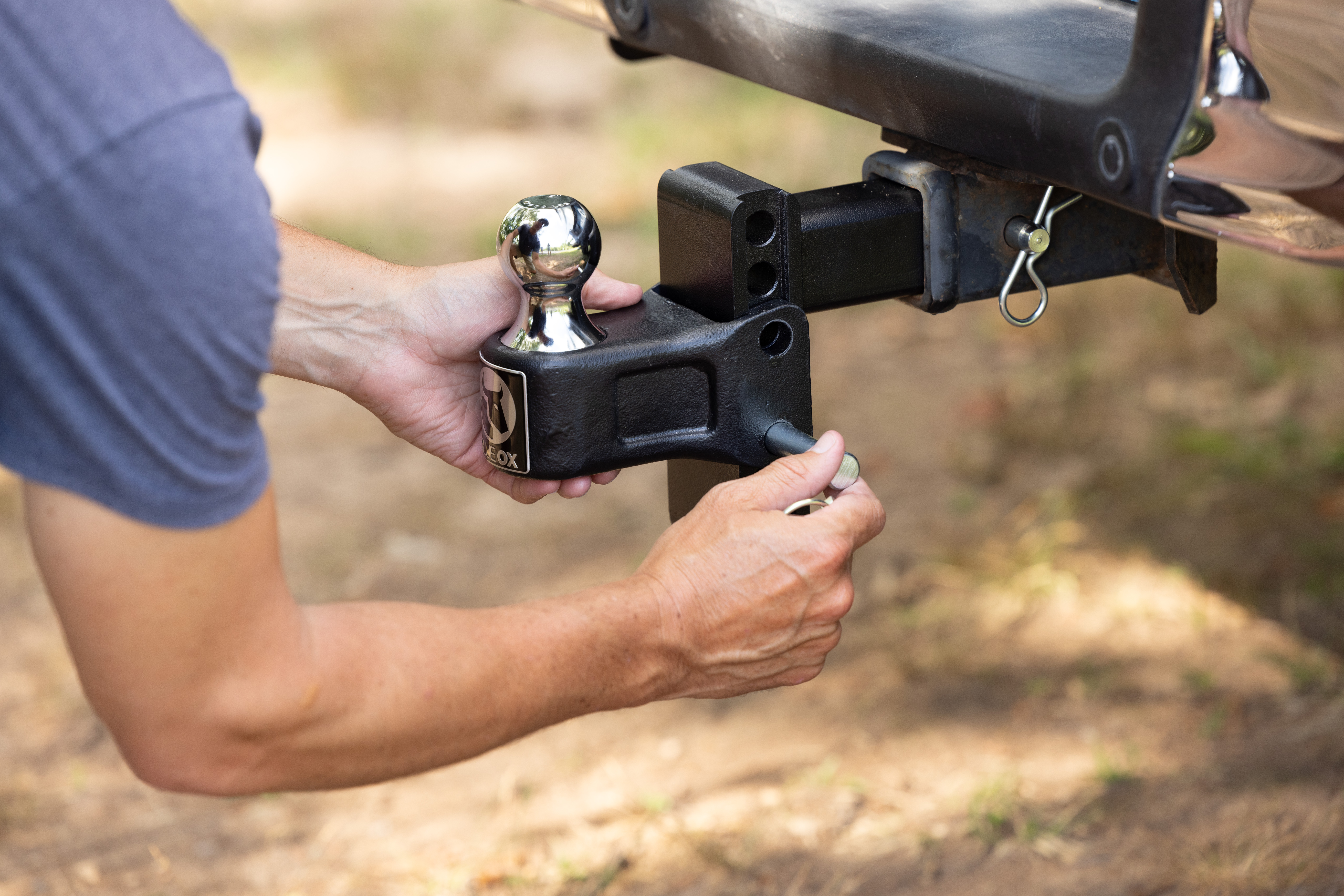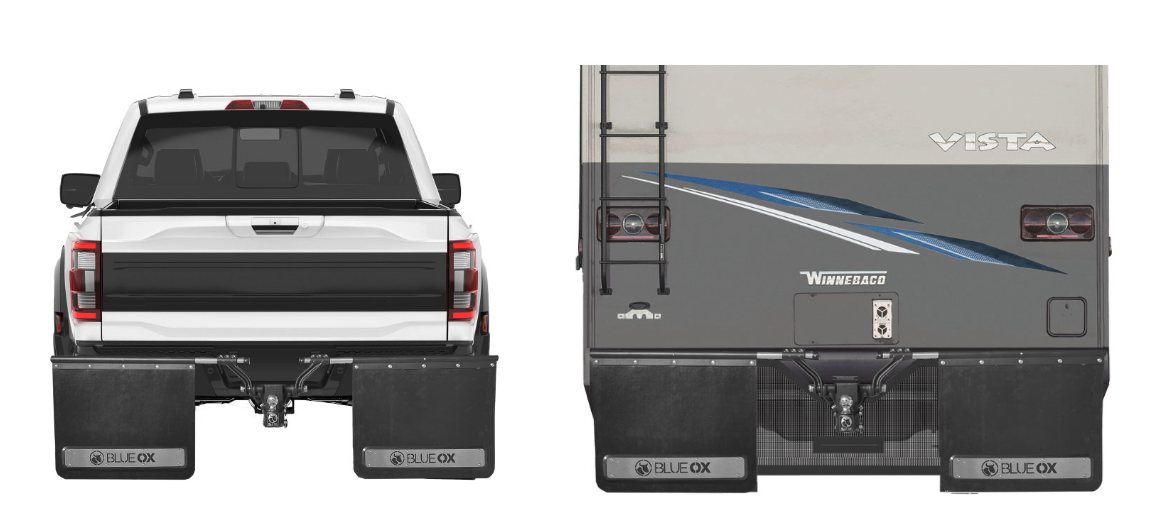Making sure you understand the various weight needs and limitations associated with your rig is one of the most important things you can do to keep your family and yourself safe while towing a travel trailer. Ensuring your tow vehicle and hitch are capable of towing your trailer, and its cargo, will help you maintain control of the trailer while on the road. Stay safe while towing by properly measuring tongue weight.
What is Tongue Weight?
Tongue weight (TW) is the downward force applied at a vehicle-trailer connection point when your trailer is connected for towing. The tongue weight should be between 10-15% of the total trailer weight. Measuring tongue weight is essential to be certain that your trailer is loaded properly. The other weight to keep in mind is the (GTW) gross trailer weight.
Tongue Weight vs. Hitch Weight
The phrase “tongue weight” and “hitch weight” are both often seen when discussing trailer towing. Don’t let these two terms confuse you, because they both mean the same thing. When discussing fifth wheels, you may see “pin weight,” which is also the same concept.
Why Is Tongue Weight Crucial for Towing?
Measuring tongue weight is important when towing. Without knowing this piece of information, you may end up creating a driving hazard to yourself and others on the road. Too much tongue weight can cause your vehicle to be less responsive to turning and braking, making it difficult to control the trailer while driving. Too little tongue weight is also an issue and can cause trailer sway. Trailer sway is the most common problem that occurs when tongue weight is incorrect. Trailer sway can become very dangerous because it causes the trailer to fishtail back and forth and this can be unexpected to the driver and difficult to regain control.
Too heavy of a downward force will effect steering, too light means risk for trailer sway.
With the incorrect tongue weight, you may also experience:
- Rear tire overload
- Tire blowouts
- Brakes that become unresponsive
- Traffic accidents
- Serious damage to your vehicle or trailer
- Personal injury or even death
Measuring Tongue Weight on a Trailer
Measuring tongue weight before you hit the road isn’t overly complicated. There are a few ways to determine tongue weight.
Using a Tongue Weight Scale
The easiest way to calculate tongue weight is with a tongue weight scale. These have come a long way with modern technology. They can be purchased at various towing supply shops or online for under $200.00. They are small and designed specifically for measuring tongue weight. Before taking the measurement, make sure that you are loaded down with everything you intend to haul. This includes camping gear if you are hauling a travel trailer for camping. The steps for measuring tongue weight with a tongue weight scale are as follows:
- Load up your trailer and/or put all of your gear inside and park the vehicle and trailer on a flat, hard, level surface.
- Place the tongue weight scale beneath the tongue jack and lower it down until the jack is pressing on the scale.
- Avoid lowering any other jacks, then detach your trailer from the truck and take your reading from the scale.
Commercial Scale for Measuring Tongue Weight
Another easy method for measuring tongue weight is to use a commercial vehicle scale. You can typically find these at a truck stop, quarry, or material supply center. Once you’ve figured out where you will be weighing your trailer, make sure it is loaded up with everything you plan to haul. Follow these steps:
- Weigh your vehicle without the trailer hooked up.
- Weigh your vehicle again with the trailer attached but do not let the wheels of the trailer onto the scale or you will get an inaccurate number. You want just the weight of the vehicle with tongue weight, not the entire weight of the trailer (you will get this measurement later).
- Then take the weight of your vehicle with the trailer attached and subtract the weight without the trailer attached and this equals your trailer tongue weight.
Measuring Tongue Weight for a Weight Distribution Hitch
Using a weight-distribution hitch is an incredibly helpful piece of equipment when towing a trailer. It is typically not recommended to tow a trailer any long distance without one. Measuring tongue weight is necessary when selecting the proper weight distribution hitch. You will need to know the weight of the gear you plan to load behind the rear axle of the tow vehicle and add this amount to the total tongue weight. Do so by following these steps:
- Weigh your vehicle with the gear you intend to haul.
- Weigh your vehicle without the gear.
- Subtract the weight without gear from the weight with gear to get the total gear weight.
- Add the total weight of your gear to the tongue weight.
- Select a weight-distribution hitch that will support the amount of total tongue weight.
How to Determine Tongue Weight Adjustments
Every towing vehicle is rated for the amount of weight it can safely tow. It is a good idea to check that you are not trying to tow more than your vehicle can handle. Weigh your trailer with all gear loaded. If you’ve chosen to determine the tongue weight on a commercial scale, you can easily check your trailer weight:
- Pull your tow vehicle and trailer onto the scale to weigh them together. This is your Gross Combined Vehicle Weight (GCVW)
- Since you already have the weight of your vehicle from the previous steps used for measuring tongue weight, simply subtract the weight of your tow vehicle from the GCVW.
- An easy equation to use is: GCVW – GVW (Gross Vehicle Weight) = GTW (Gross Trailer Weight)
You may find that you are over or under the appropriate tongue weight or gross trailer weight for your vehicle. If this is the case, you will need to adjust your cargo. If the tongue weight is too low, try moving some cargo closer to the front of the trailer to add more weight to the tongue. If the tongue weight is too high, you can try moving cargo further away from the tongue. As you are adjusting your cargo from front to back, try to keep it as balanced on the left and right side as possible. If your gross trailer weight is too high for your vehicle, you will need to remove cargo or you could risk damaging your tow vehicle.
Install Blue Ox SwayPro Weight Distribution Hitch for Safe Towing
Measuring tongue weight, trailer weight, and vehicle weight are key steps in creating a safe towing experience, but sometimes trailer sway can occur due to weather or poor road conditions. Having a weight distribution height that prevents trailer sway before it starts adds a layer of safety for you and other drivers on the road. Rather than attempting to manage trailer sway once it has begun, the SwayPro weight distribution hitch stops it from occurring. Trunnions on each side of the SwayPro hitch head use a caster effect, which works in conjunction with spring bars, to keep the trailer in line. SwayPro is one of the safest and easiest-to-use sway prevention devices currently available. To find out which SwayPro is best for you, visit the Blue Ox website.

